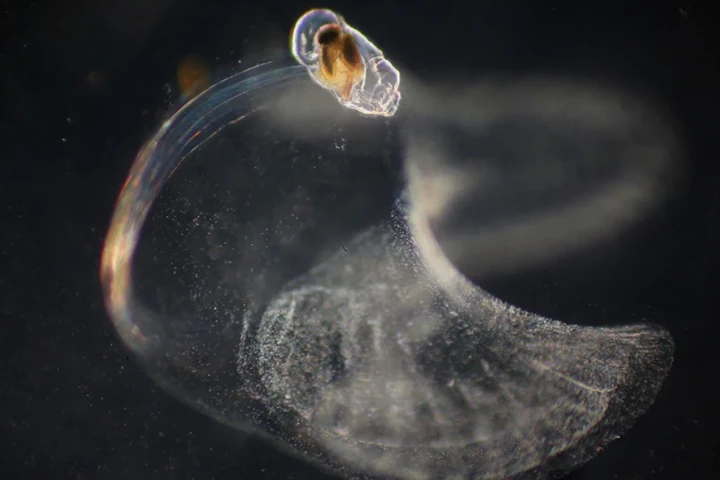University of Oregon
-
In a new study from the University of Oregon, scientists turned up the temperature to see which type of passive heat therapy packs the most health punch – hot baths, traditional saunas, or those fancy far-infrared saunas.
-
A strange sea creature known as the salp reproduces asexually, building long chains of clones. Researchers have now decoded the way these long salp chains propel themselves, a finding that could lead to better propulsion systems for underwater vehicles.
-
A house made of mucus may not sound like a desirable abode, yet researchers have found that the crafty animal creating such an unappealing structure may help engineers design cheaper and more efficient pumps for industrial uses like water filtration.
-
Researchers got tiny worms high on cannabis to see how it affected their food preferences and found striking similarities between them and us. The discovery could lead to the development of targeted drug therapies.
-
Why do ants and other small creatures have such sharp bites? According to scientists from the University of Oregon and the Pacific Northwest National Laboratory (PNNL), the answer lies in their ability to uniformly add zinc atoms to their teeth.
-
The universe likes to play coy about its age, but we have a pretty good idea of the range. Now, a series of new studies has investigated the question using different methods, and have reached different answers, separated by more than a billion years.
-
A team of scientists has created a mathematical model for what they say is the ideal coffee, recommending that a less-is-more approach could lead baristas to produce one heavenly espresso after another, using around a quarter fewer beans.
-
When it comes to repairing bone injuries or defects, some scientists have been experimenting with what's known as bone morphogenetic protein. It does have some limitations, but those could soon be overcome through the use of a new biomaterial.
-
Devices such as digital cameras electronically measure levels of high-energy light, and that's good enough for most of us. Now, however, scientists have developed a mechanical alternative that works with almost all types of light.
-
Practice makes perfect, and Motus is looking to make throwing practice perfect with its motusQB. The device records the biomechanical data of throws in football, tracking the workloads on a quarterback’s throwing arm through a range of metrics to help prevent injury and improve their game.
-
You might think that with today's composite dental fillings, once you get a tooth filled, it's good for life. According to Prof. Jamie Kruzic, however, "almost all fillings will eventually fail." That's why he's part of a team that's looking into a longer-lasting filling material: bioactive glass.
-
Scientists have discovered that not only does everyone emit an invisible "microbial cloud," but that individuals can be recognized by the bacteria that make up their particular cloud.
Load More











